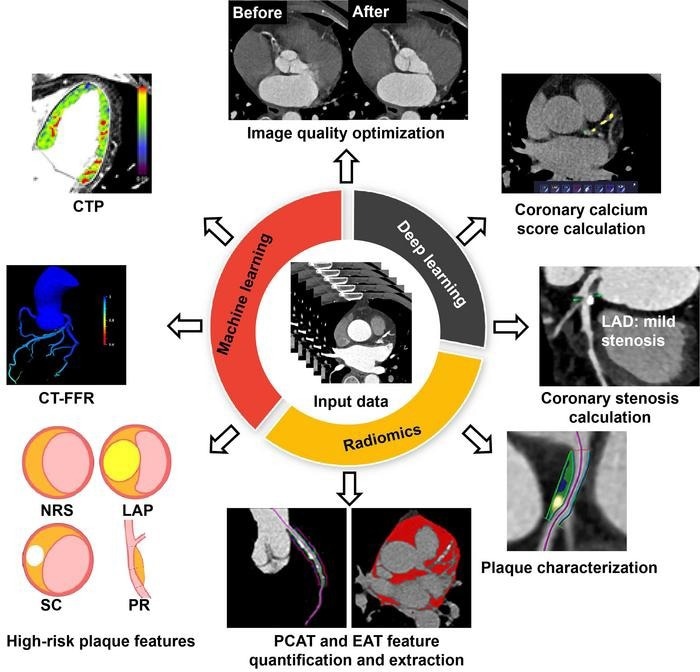Jan 18 2024Reviewed by Lily Ramsey, LLM
Professors Christian Tesche (Department of Cardiovascular Imaging, Department of Radiology and Radiological Science, Medical University of South Carolina, and Department of Cardiology, Munich University Clinic, Ludwig-Maximilian University) and Long-Jiang Zhang (Department of Radiology, Jinling Hospital, Affiliated Hospital of Medical School, Nanjing University) co-published the review.
 The application of AI technology in the diagnosis of cardiovascular diseases using coronary CT angiography (CCTA) has gradually deepened, and efficient and intelligent methods are optimizing and reshaping the clinical diagnosis pathways, including optimization of image quality, fully automated calculation of calcification score, coronary stenosis, quantitative and qualitative assessment of plaque components, quantification of perivascular and pericardiac fat, and calculation of non-invasive CT-derived fractional flow reserve (CT-FFR) and myocardial perfusion. Image Credit: Science China Press
The application of AI technology in the diagnosis of cardiovascular diseases using coronary CT angiography (CCTA) has gradually deepened, and efficient and intelligent methods are optimizing and reshaping the clinical diagnosis pathways, including optimization of image quality, fully automated calculation of calcification score, coronary stenosis, quantitative and qualitative assessment of plaque components, quantification of perivascular and pericardiac fat, and calculation of non-invasive CT-derived fractional flow reserve (CT-FFR) and myocardial perfusion. Image Credit: Science China Press
Artificial intelligence (AI) is becoming a key component of the next wave of scientific and technical revolution and industrial change due to the ongoing advancements in science and technology. It seeks to emulate human awareness and cognitive functions, learn from mistakes and grow over time, and respond in a way that is as good as or better than that of a real person.
Currently, efforts are being made to apply AI technologies such as deep learning, machine learning, and others to diagnosing and prognosticating cardiovascular diseases, image interpretation, precise classification, and intelligent diagnostic and decision-making. This has resulted in a wide range of potential applications and innovative opportunities.
European and American associations support coronary CT angiography (CCTA) as the use of Class 1A evidence for coronary artery disease since it is a safe and reliable non-invasive procedure. In recent years, initiatives to use AI to execute the entire CCTA process have enlarged the CCTA's application span. AI has demonstrated significant promise and benefits in many aspects of CCTA, such as picture quality optimization, fully automated computation, quantitative and qualitative evaluation, and so on.
This review provides a comprehensive introduction to common artificial intelligence (AI) approaches used in cardiovascular computed tomography (CT), a summary of the state of research and application advancements in this area, and an outlook on the field's future. It is anticipated that the digital and intelligent management paradigm for cardiovascular disease would raise the standard and efficiency of disease management and give patients access to safer, more suitable, and more accurate diagnosis and treatment options.
Journal Reference:
Xu, P.-P., et. al. (2023) Artificial intelligence in coronary computed tomography angiography. Medicine Plus. doi:10.1016/j.medp.2023.100001.
Source: http://www.scichina.com/english/